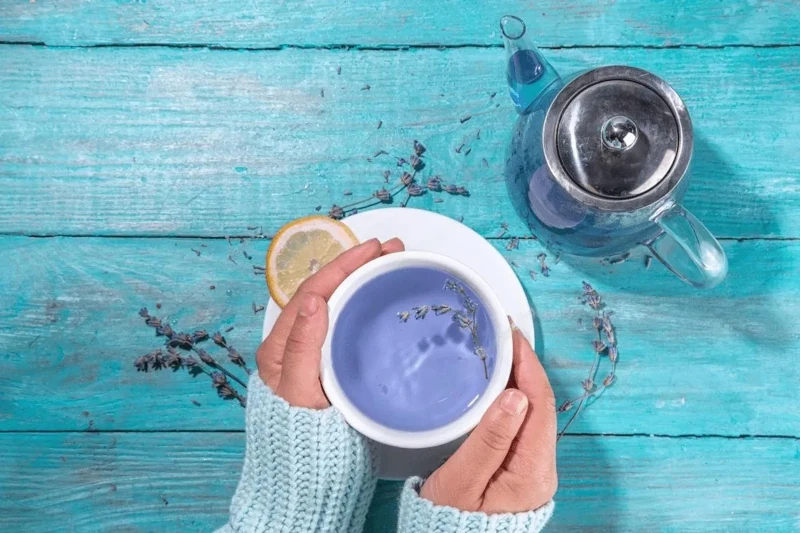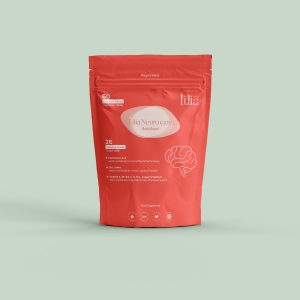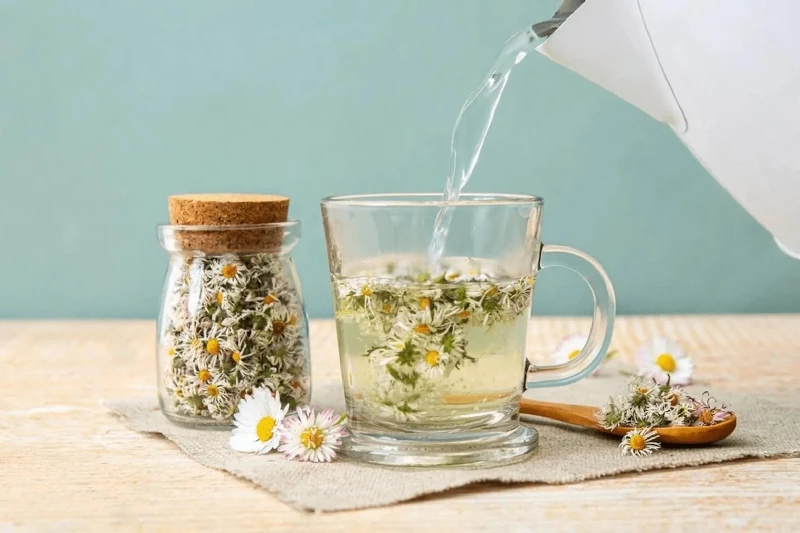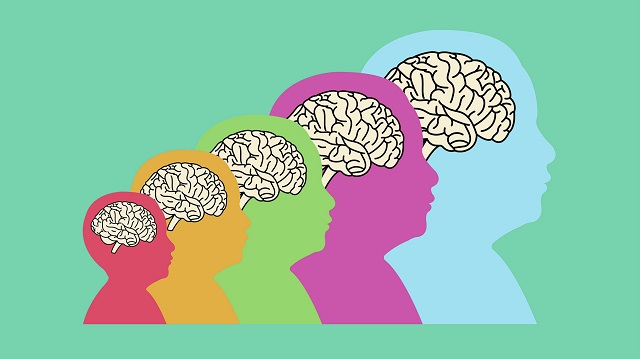جدول محتواها
Herbal medicine used for stress reduction has been a cornerstone of traditional healing practices for centuries. As the pace of modern life continues to accelerate, more and more people are seeking natural alternatives to manage stress and promote overall well-being.
This article will explore the science behind herbal stress relief, delve into popular herbs such as chamomile, lavender, and ashwagandha, and provide practical tips on how to incorporate these botanical remedies into your daily routine.
Whether you’re dealing with occasional anxiety or chronic stress, understanding the benefits of herbal medicine can be a valuable tool in your quest for a calmer, more balanced life.
How Stress Affects Your Body
Stress, a common response to the demands of modern life, can have a profound impact on our physical and mental health. When faced with stressors, the body releases hormones such as cortisol, triggering the “fight or flight” response.
This physiological reaction can lead to a range of symptoms, including headaches, muscle tension, fatigue, and difficulty sleeping. Prolonged stress can also weaken the immune system, making individuals more susceptible to illness. While there are many strategies for managing stress, some people turn to natural remedies like herbal tea for stress reduction.
The Benefits of Herbal Medicine for Stress
Herbal medicine has been utilized for centuries to address a wide range of health concerns, and stress management is no exception. Many herbs possess properties that can promote relaxation, reduce anxiety, and improve sleep quality.
For instance, chamomile is renowned for its calming effects on the nervous system, while lavender is often used to alleviate insomnia. Additionally, adaptogenic herbs like ashwagandha can help the body better cope with stress by supporting the adrenal glands. By incorporating herbal medicine used for stress reduction into a wellness routine, individuals may experience a significant improvement in their overall mood and well-being.
Popular Herbs for Stress Reduction
Numerous herbs have gained popularity for their ability to alleviate stress and promote relaxation. Chamomile, with its calming properties, has been a go-to remedy for centuries. Lavender, known for its soothing aroma, can help to reduce anxiety and improve sleep quality.
Additionally, ashwagandha, an adaptogenic herb, can help the body better withstand stress by supporting the adrenal glands. By incorporating herbal tea for stress reduction into a daily routine, individuals may experience a significant improvement in their overall mood and well-being.
Ashwagandha: The Indian Ginseng
Ashwagandha, often referred to as Indian ginseng, has gained significant attention in recent years for its ability to promote overall well-being and reduce stress. This adaptogenic herb is believed to help the body cope with stress by supporting the adrenal glands.
Studies suggest that ashwagandha may help reduce cortisol levels, a hormone associated with stress. Additionally, this herb has been shown to improve sleep quality, boost energy levels, and enhance cognitive function.
As a result, ashwagandha has become a popular choice among those seeking natural remedies for stress management. By incorporating herbal medicine used for stress reduction, such as ashwagandha, into a daily routine, individuals may experience a noticeable improvement in their quality of life.
Chamomile: The Calming Tea
Chamomile has long been revered for its soothing properties and is often considered one of the most effective herbal teas for stress reduction. Rich in antioxidants, this delicate flower has been shown to have calming effects on the nervous system. Chamomile tea has been used for centuries to alleviate anxiety, promote relaxation, and improve sleep quality. The compounds found in chamomile, such as apigenin, bind to specific receptors in the brain that reduce anxiety and induce sleepiness. Whether enjoyed as a warm beverage before bed or sipped throughout the day, chamomile tea offers a gentle and natural way to manage stress and promote a sense of tranquility.
Lavender: The Relaxing Scent

Lavender, renowned for its calming aroma, has long been used in aromatherapy to promote relaxation and reduce anxiety. The fragrant oil extracted from lavender flowers contains compounds that interact with the brain’s receptors, inducing a sense of calm and well-being. Not only is lavender effective for reducing stress, but it can also improve sleep quality.
When incorporated into a bedtime routine, lavender can help create a soothing atmosphere that promotes restful sleep. Whether inhaled through aromatherapy, used in a bath, or applied topically in a lotion, the calming properties of lavender make it a popular choice for those seeking natural remedies for stress.
By incorporating herbal medicine used for stress reduction, such as lavender, into daily life, individuals can experience a significant improvement in their overall mood and well-being.
Valerian Root: The Natural Sleep Aid
Valerian root has been used for centuries as a natural remedy to promote relaxation and improve sleep quality. This herb contains compounds that interact with GABA receptors in the brain, which can help to reduce anxiety and induce calmness.
While it’s often taken as a supplement, valerian root can also be brewed into a tea. In fact, valerian root tea is a popular choice for those who struggle with insomnia or difficulty falling asleep. By incorporating herbal tea for stress reduction, such as valerian root tea, into a nightly routine, individuals may experience a significant improvement in their sleep quality and overall well-being.
How to Incorporate Herbs into Your Daily Routine
There are numerous ways to seamlessly integrate herbs into your daily life. Start by infusing your culinary creations with fresh or dried herbs. Experiment with adding herbs like basil, rosemary, or thyme to your cooking to enhance flavors and potentially reap health benefits. Additionally, herbal teas provide a calming and soothing way to unwind. Chamomile, lavender, and peppermint are popular choices for their relaxing properties.
For topical application, consider incorporating essential oils derived from herbs into your skincare routine or using them in a diffuser to create a calming atmosphere. Moreover, growing your own herbs allows you to have a constant supply for culinary and medicinal purposes.
Lilia Neuro care, A Stress-Reducing Brain Health Supplement

Neuro Care is a comprehensive dietary supplement designed to support cognitive health and brain function. Packed with essential vitamins, minerals, and nutrients, this unique formula provides targeted support for stress reduction, memory enhancement, and overall mental well-being.
Key Benefits for Stress Reduction:
- Reduces oxidative stress on brain cells: Protects brain cells from damage caused by harmful free radicals.
- Supports neurotransmitter synthesis: Helps regulate brain chemicals essential for stress response and mood balance.
- Enhances cognitive function: Improves focus, concentration, and memory, helping to counteract the negative effects of stress on mental clarity.
- Promotes relaxation and calmness: Contains ingredients known to reduce anxiety and promote a sense of tranquility.
Additional Benefits:
- Boosts brain health: Provides essential nutrients for optimal brain function, including high levels of lycopene, zeaxanthin, Korean ginseng, CoQ10, lutein, and more.
- Supports immune system: Contains vitamins and minerals to strengthen the body’s defenses against illness and stress.
- Suitable for all: Vegan, vegetarian, gluten, and GMO-free.
- Easy to use: Chocolate-flavored tablets for convenient daily consumption.
Trust Lilia Healthcare: Developed by leading UK doctors and scientists, Neuro Care is backed by scientific research and formulated with high-quality ingredients.
Safety Considerations and Potential Side Effects
While herbal medicine used for stress reduction offers numerous benefits, it’s essential to approach their use with caution. Some herbs may interact with prescription medications, so it’s crucial to consult with a healthcare professional before starting any new supplement.
Additionally, individuals with certain medical conditions, such as pregnancy or liver disease, should exercise caution and seek advice from a qualified practitioner. Potential side effects can vary depending on the herb and individual factors.
Common side effects may include digestive upset, headaches, and allergic reactions. It’s important to choose high-quality, reputable brands and follow recommended dosage guidelines to minimize the risk of adverse effects.
Consult Your Healthcare Provider
Before incorporating any new supplement, including herbal tea for stress reduction, into your routine, it is strongly recommended to consult with a healthcare professional. They can provide personalized advice based on your specific health conditions, medications, and potential interactions.
While herbal teas are generally considered safe, they may not be suitable for everyone. A healthcare provider can help determine if a particular herb is right for you and address any concerns you may have.
Conclusion
In conclusion, herbal medicine used for stress reduction offers a natural and often effective approach to managing stress and promoting overall well-being. While these remedies can be beneficial, it’s important to use them responsibly and consult with a healthcare professional before starting any new supplement.
By incorporating herbs into a holistic wellness routine, individuals can experience reduced anxiety, improved sleep quality, and a greater sense of calm. However, it is crucial to remember that herbal remedies should complement, not replace, conventional medical treatments.
FAQs
Are herbal remedies safe to use?
While many herbal remedies are generally safe when used as directed, it’s essential to consult with a healthcare professional before starting any new supplement, especially if you have underlying health conditions or are taking other medications.
How long does it take for herbal remedies to work for stress reduction?
The time it takes for herbal remedies to alleviate stress can vary from person to person. Some individuals may experience relief within a few days, while others may require several weeks.
Can I combine herbal remedies with prescription medications?
It’s crucial to avoid combining herbal remedies with certain prescription medications, as they may interact and cause adverse effects. Always consult with a healthcare provider before combining any herbal supplements with your medication regimen.
What are some common side effects of using herbal remedies for stress?
Common side effects of herbal remedies for stress can include digestive upset, headaches, and allergic reactions. However, the specific side effects may vary depending on the individual and the particular herb being used.







